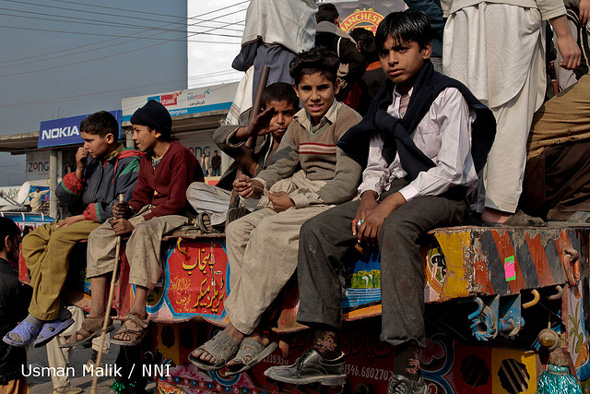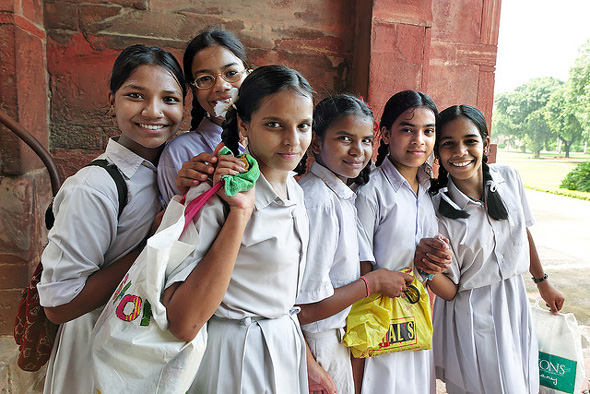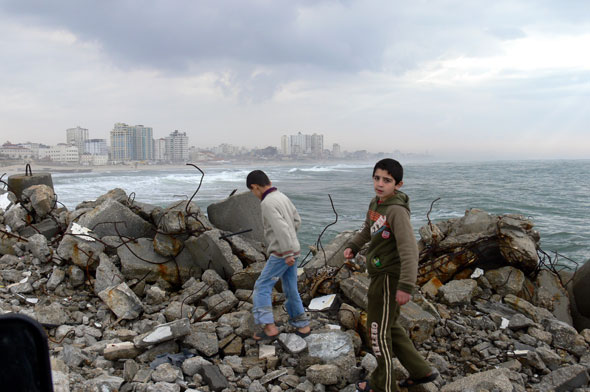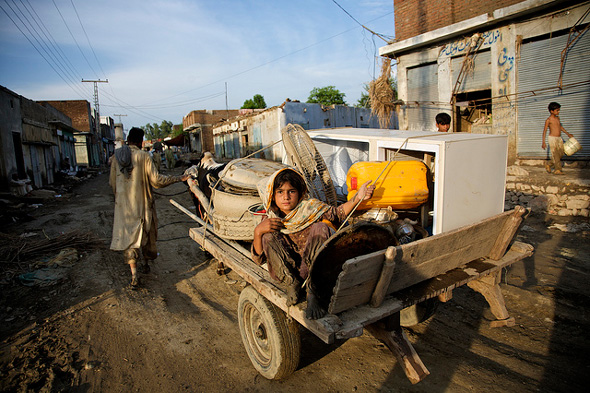-
Joel Cohen on Why Students Should Consider Demography
›“Why should you consider taking a demography course in college?” That’s the question Joel Cohen, noted demographer and professor at Rockefeller and Columbia University, looks to answer in a 45-minute introduction to demography produced by the Floating University and released for free on YouTube.
-
Education as a Conservation Strategy – Really?
›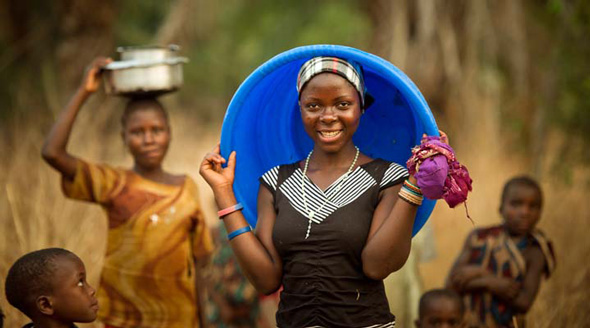
The original version of this article appeared in The Nature Conservancy’s October issue of their Science Chronicles newsletter.
It seems like everywhere you turn recently, you hear how the planet’s population is headed to 10 billion. And obvious questions follow: How can we balance far more people with the natural resources needed for their survival? How will we get more food? How will we get more energy?
-
Youth Bulge, Public Policy, and Peace in Pakistan
›October 26, 2012 // By Payal Chandiramani
While Pakistan’s demographic challenges are perhaps well known – two-thirds of the population of 180 million is under 30 years old – increasing security concerns have prompted discussions about exactly how much the country’s youthfulness is affecting its prospects for peace. On October 10, the U.S. Institute of Peace and George Mason University’s School of Public Policy hosted a day-long conference on “Youth Bulge, Public Policy, and Peace in Pakistan” to tackle this question.
-
International Day of the Girl Child: Recognizing the Unique and Complex Vulnerability of Young Girls
›October 11, 2012 // By Schuyler NullToday is the first “International Day of the Girl Child” – a day established last year by the United Nations to acknowledge the rights and unique challenges faced by young girls around the world.
The latest UN projections put the number of women under the age of 19 at about 1.18 billion today. Especially in developing countries (though not only) these young girls often face outsized barriers to happy, healthy, and productive lives.
-
Hillary Rosner, Momentum Magazine
Bridges and Bicycles in India
›October 8, 2012 // By Wilson Center Staff
This is part of a seven-part “environmental challenges and opportunities” series featured in the University of Minnesota’s fall issue of Momentum magazine.
As world population careens toward nine billion, all the planet’s systems will be strained. Lowering fertility rates is a complex endeavor, and no one path leads directly there. Poverty, access to contraception, education, job prospects, cultural mores – all of these influence family size. So addressing any of them, or a combination, can help. Solutions abound, at least on a relatively small scale, such as conservation programs that include family planning components.
-
Immediate Action Needed for Gaza to be Livable in 2020, Says UN Report
›October 3, 2012 // By Kate Diamond
Eight years from now, the Gaza Strip will have “virtually no reliable access to sources of safe drinking water, standards of healthcare and education will have continued to decline, and the vision of affordable and reliable electricity for all will have become a distant memory for most,” according to a United Nations report released last month. The bleak assessment concludes that without immediate action to address immense and interconnected economic, demographic, environmental, infrastructure, and social challenges facing Gazans, “the already high number of poor, marginalized and food-insecure people depending on assistance will not have changed, and in all likelihood will have increased.”
-
Farzaneh Roudi for the Middle East Program
Iran Is Reversing Its Population Policy
›Excerpted below is the introduction by Farzaneh Roudi. The full report is available for download from the Wilson Center’s Middle East Program.
Once again, the Iranian government is reversing its population policy – its fertility policy, to be more precise. Alarmed by the country’s rapidly aging population, Iran’s Supreme Leader Ayatollah Ali Khamenei is now calling on women to procreate and have more children, and the Iranian Minister of Health and Medical Education Marzieh Vahid Dastjerdi has recently said, “The budget for the population control program has been fully eliminated and such a project no longer exists in the health ministry. The policy of population control does not exist as it did previously.”
-
Michael Kugelman, Dawn
Silence Surrounds Pakistan’s Most Serious Threats
›August 18, 2012 // By Wilson Center Staff
The original version of this article, by Michael Kugelman, appeared on Dawn.
There’s been much discussion lately about the “water kit,” a mysterious contraption that a purported Pakistani engineer insists will enable cars to use water as fuel.
Yet missing from this debate is a basic but critical fact: Pakistan is dangerously water-deficient. Per capita availability hovers just above the scarcity threshold of 1,000 cubic meters. In several decades, availability could plummet to 550 cubic meters.
Showing posts from category education.


